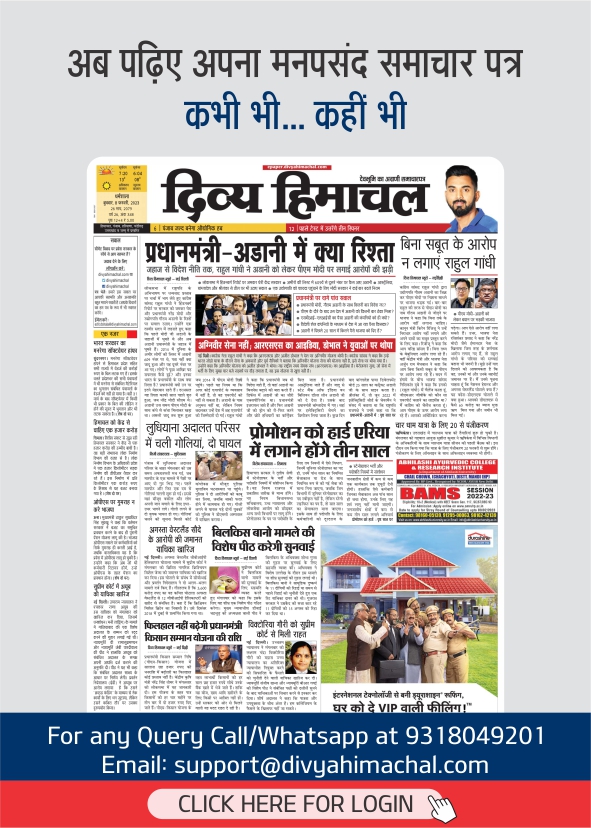Ugly Side Of War

(The writer is a veteran Indian journalist, author and noted columnist.)
War is ugly. It becomes uglier when it is between two inveterate neighbours. They go to any extent to harm and humiliate each other. Pakistan has mutilated and killed two Indian soldiers when they are said to have crossed the Line of Control (LoC). Understandably, India has retaliated and destroyed Pakistan’s posts on the border.
Defence Minister Arun Jaitley has condemned the reprehensible and inhuman act saying that “such acts don’t take place even during war. It is an extreme form of barbarism. The whole country has full faith in our armed forces which will react appropriately. The sacrifice of these soldiers will not go in vain.” Condemning the despicable act, Army chief Bipin Rawat, too, has vowed an “appropriate” response.
Beheading soldiers is nothing new. The army on both sides is said to have indulged in it before. What is annoying is Pakistan’s flat denial of the incident. Unfortunately, there was no regret, no grief. The UN probe to verify facts could have been a possibility. But since New Delhi has stopped the International Court at The Hague from taking up a Pakistan complaint against India on the plea that the two countries settle their disputes bilaterally, it could not allow a third party.
However, the incident is too serious to be left at that. During earlier incidents, India had evidence to prove that Hafiz Saeed, the Lashkar-e-Taiba chief, who has been placed under house arrest now, was at the border before the clashes. But Pakistan, on its part, had failed to order a probe. Maybe, it is the doing of irregulars who, regretfully, seem to constitute a part of Islamabad’s combative force. The country is already experiencing violence from within. The Taliban are daily killing 20 to 25 Pakistanis and there is no place which is beyond the range of their guns.
New Delhi should realise that Pakistan is its front state. If it ever goes under, India would be directly threatened by the Taliban and face the danger of destablisation. The policy should be how to retrieve Pakistan from the hopeless situation it is in. A weak Pakistan is a threat to India, which is powerful enough.
Dialogue is the only way to improve and it should never be suspended or downgraded. There is no option to talks. But I am surprised at some irresponsible statements emanating from Pakistan that dialogue between the countries should go on despite skirmishes on the border.
Indian Foreign Minister Sushma Swaraj has shown restraint and maturity and has not commented anything adversely. But the government’s decision to keep the new positive visa policy on hold will only lessen people-to-people contact which is essential for better understanding. Prime Minister Narendra Modi’s statement that business with Pakistan cannot be as usual is understandable and his ordering surgical strikes earlier have had the desired effect.
Yet my experience shows that Islamabad resiles from its rigid stand if and when New Delhi steps back and reflects. I recall what Director General of Trade Ismail Khan in Pakistan occupied Kashmir had said a couple of years ago. He said that trade and travel across the ceasefire line would remain suspended until the skirmishes subsided. This was an unwise step which must have hurt Pakistan as much as it did to India.
For some reasons, former military officers on both sides have turned out to be more hawkish. Some years ago, I was shocked to hear Admiral Iqbal of the Pakistan Navy reminding India about Muslim rule in the country for 1000 years. Equally jingoistic was the suggestion by a retired Army Major General that the solution to India’s problems with Pakistan was through military action. Both should realise that the engagement of the two countries would not be a street brawl. They have nuclear weapons and the worst can happen.
New Delhi’s estimate that the ceasefire violations were meant to give cover to terrorists to sneak into Kashmir may be true. But the security forces in the Valley are strong enough to chastise them. The fallout of tension affects the people in Kashmir. They feel more insecure and fear the worst. The separatists, including Yasin Malik and Shabbir Shah, do not realize that they are increasingly becoming irrelevant. The same is the case with the Hurriyat.
I wish the establishments both the countries consider the ceasefire line sacred. This has been converted into LoC through the Shimla Agreement. The then Prime Minister, Zulfikar Ali Bhutto, hailed it as the “line of peace” in an interview to me. And it has been seldom violated for the last three decades. Blood at the border has unnecessarily disturbed the status quo. Soon the two sides should realize that some agreement was necessary.
विवाह प्रस्ताव की तलाश कर रहे हैं? निःशुल्क रजिस्टर करें !
Keep watching our YouTube Channel ‘Divya Himachal TV’. Also, Download our Android App













